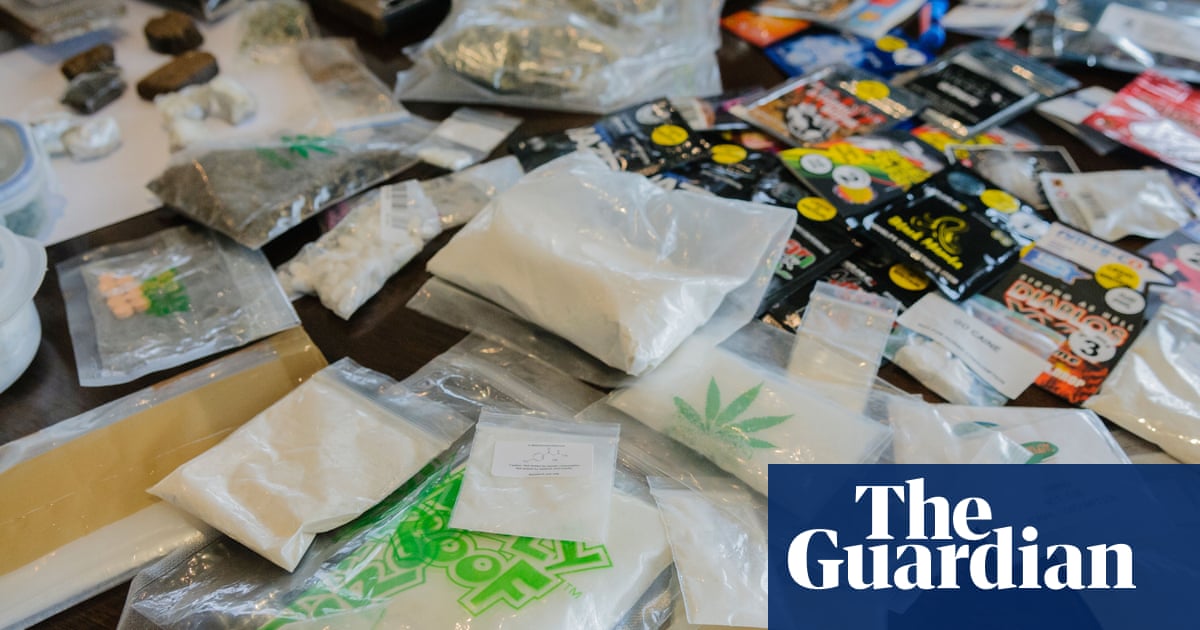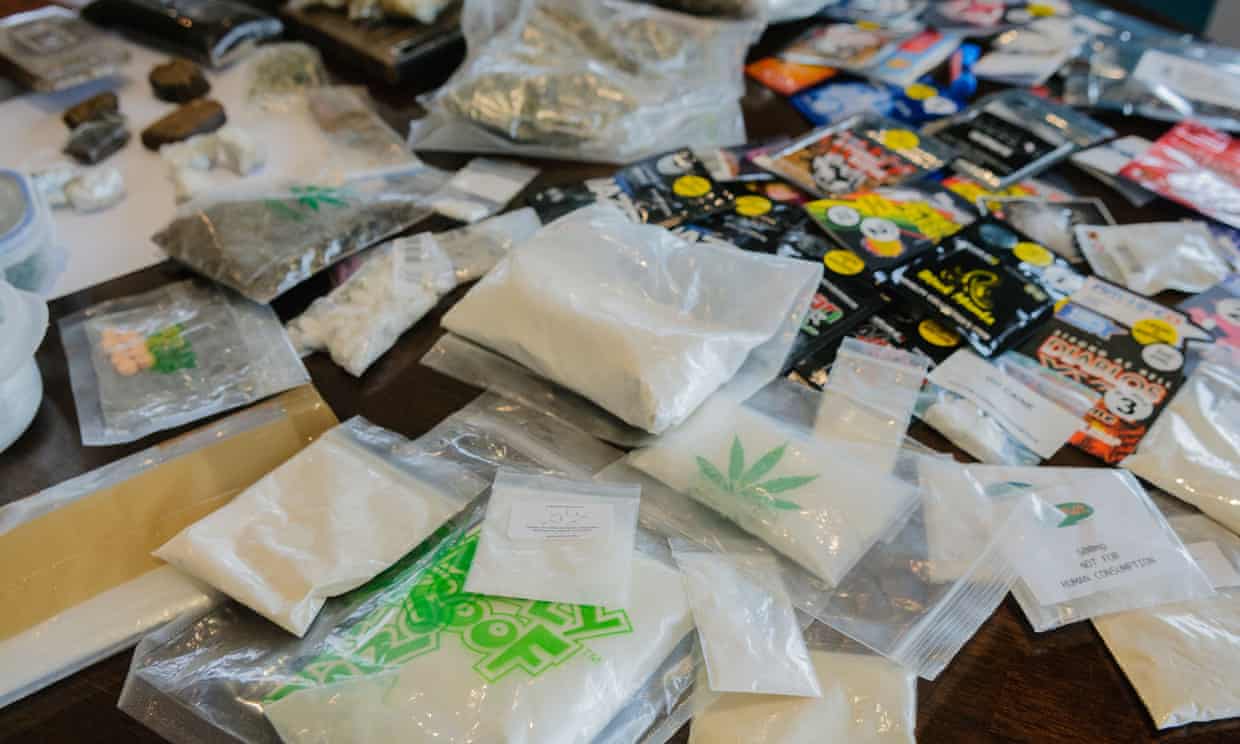Failures in treatment and policing behind ‘boom in illegal drugs’


Disappearing and underfunded drug treatment services and fruitless attempts to restrict the flow of illegal substances into the country underpin a booming £9.4bn illicit drugs market in the UK, a landmark review has found.
Prof Dame Carol Black was commissioned by the former home secretary Sajid Javid to lead a major review to look into the ways in which drugs are fuelling serious violence.
The first phase of her review, published on Thursday, will make uncomfortable reading for ministers as they assemble in Glasgow for a UK government summit on tackling drug misuse, as it paints a bleak picture of supply and demand across the UK.
Black’s analysis found that while the cost to society of illegal drugs is about £20bn a year, only £600m is spent on treatment and prevention, calling for radical change to the UK’s approach to treatment.
“So the amount of unmet need is growing, some treatment services are disappearing, and the treatment workforce is declining in number and quality,” she writes.
“Ultimately, we need to transform our approach to treatment, investing in it but also innovating so that treatment services are able to respond to today’s drugs market and future developments.”
Presenting her findings to the summit, Black told delegates: “This review will have done its work if today people can acknowledge what it says and then decide to do something about it, rather than it just being another review with a set of figures that will just go on and we will do it again in three years’ time.”
She said that the involvement of children using and supplying drugs was the element that had shocked her most while compiling the report. Highlighting the 27,000 children who have been drawn into the drugs trade through county lines gangs, Black asked whether there was sufficient support for teenagers who are excluded from school and especially vulnerable to grooming. She added that the numbers of 11- to 15-year-olds taking drugs had gone up by 50% between 2014 and 2016.
She also called for a reconsideration of short-term sentences for drug possession, which leaves addicts on a “hamster wheel”.
Black argues that government interventions – through the Border Force, the National Crime Agency (NCA) and police forces – to restrict supply have had “limited success” and even if they were fully funded it might not make a difference to the flow of drugs into the country.
“Even if these organisations were sufficiently resourced it is not clear that they would be able to bring about a sustained reduction in drug supply, given the resilience and flexibility of illicit drug markets,” she says.
“The evidence suggests that enforcement activity can sometimes have unintended consequences, such as increasing levels of drug-related violence and the negative effects of involving individuals in the criminal justice system.”
The review comes at a time when drug-related deaths in England, Wales and Scotland have hit record highs.
The Office for National Statistics (ONS) reports that 4,359 deaths from drug poisoning were recorded in England and Wales in 2018, the highest figure since records began in 1993, and the steepest increase from one year to the next. About two-thirds of the deaths reported, or 2,917, were from drug misuse, continuing a trend seen over the last decade.
Scotland’s drug-related death toll increased by 27% over the past year to reach a record high of 1,187, according to data released in July, putting the country on a par with the US in per capita terms.
Spending on treatment has reduced significantly because local government budgets have been squeezed and central government funding and oversight has fallen away, Black says, with some local authorities reducing treatment spending by 40%.
“A prolonged shortage of funding has resulted in a loss of skills, expertise and capacity from this sector,” she adds.
“Even if more funding became available for treatment (which is vital), there would be a lot of work to do to build up capacity and expertise in this market.”
As funding pressures have increased, some services have disappeared altogether, such as outreach services targeting newer users, while others have been rationed, such as in-patient detoxification for people with complex and multiple problems, heroin-assisted treatment and residential rehabilitation.
The health minister Jo Churchill said: “Time and again we see the tragic impact of drug misuse on people’s health, their lives and the lives of those around them. We must make sure we are offering a holistic approach to treatment, not only looking after physical health in the short term, but offering sustained mental health support.
“Dame Carol’s review is an essential step towards tackling drug addiction and we will build on her work to ensure victims of the illegal drug industry can access the right services.”
Outside the Scottish Event Campus, where Thursday’s event is taking place, campaigners from Faces and Voices of Recovery UK held a banner that read: “You keep talking we keep dying.”
The UK summit is taking place 24 hours after a similar event, held at the same venue, organised by the Scottish government. The UK policing minister, Kit Malthouse, denied that this was evidence of lack of communication between the two administrations, insisting that it rather pointed to a “renewed shared commitment”.
The Scottish government summit, which was organised jointly with Glasgow city council, focused on fresh calls for a pilot drug consumption room in the city.
But Malthouse again dismissed the idea as a distraction, saying that it was legally incredibly difficult and the evidence from around the world was mixed.
“I am concerned it is a distraction from the main event, which fundamentally there has to be more concentration and resource on innovative and different kinds of treatment. I worry this is being used as a silver bullet.”
 Pathways Drug Rehabilitation Luxury Addiction Treatment & Detox Center
Pathways Drug Rehabilitation Luxury Addiction Treatment & Detox Center


